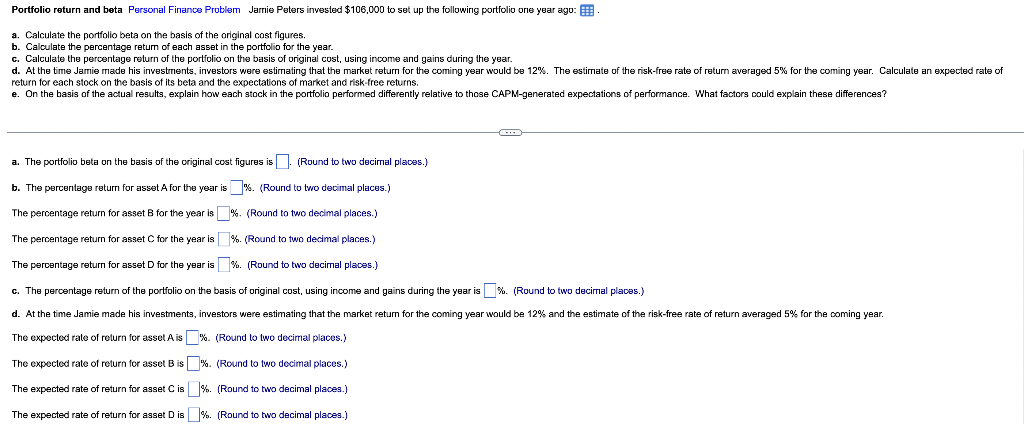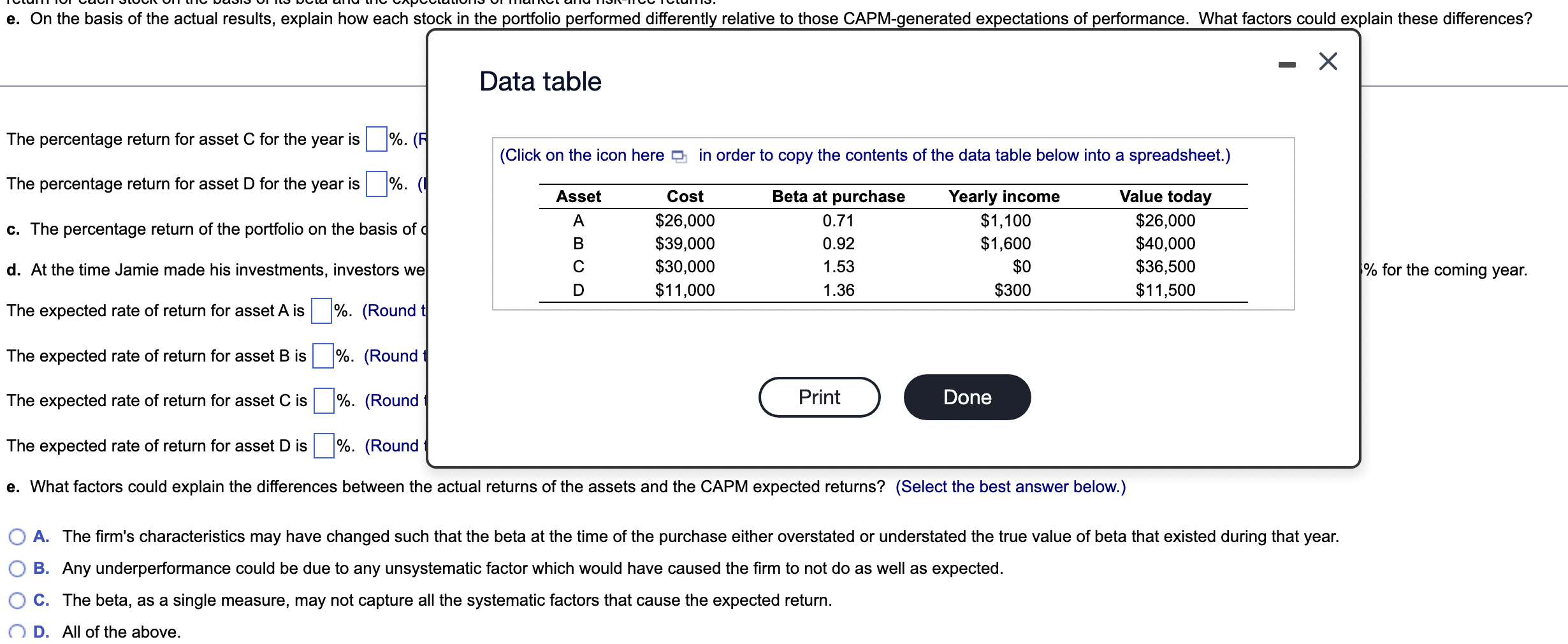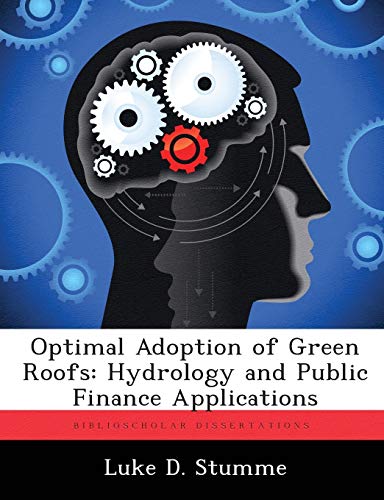

Portfolio return and beta Personal Finance Problem Jarnie Peters invested $106,000 to set up the following portfolio one year ago: a. Calculate the portfolio beta on the basis of the original cost figures. b. Calculate the percentage return of each asset in the portfolio for the year. C. Calculate the percentage return of the portfolio on the basis of original cost, using income and gains during the year. d. At the time Jamie made his investments, investors were estimating that the market return for the coming year would be 12%. The estimate of the risk-free rate of return averaged 5% for the coming year. Calculate an expected rate of return for each stock on the basis of its beta and the expectations of market and risk-free returns. e. On the basis of the actual results, explain how each stock in the portfolio performed differently relative to those CAPM-generated expectations of performance. What factors could explain these differences? a. The portfolio beta on the basis of the original cost figures is . (Round to two decimal places.) b. The percentage return for asset A for the year is %. (Round to two decimal places.) The percentage return for asset B for the year is %. (Round to two decimal places.) The percentage return for asset for the year is %. (Round to two decimal places.) The percentage return for asset D for the year is %. (Round to two decimal places.) C. The percentage return of the portfolio on the basis of original cost, using income and gains during the year is %. (Round to two decimal places.) d. At the time Jamie made his investments, investors were estimating that the market return for the coming year would be 12% and the estimate of the risk-free rate of return averaged 5% for the coming year. The expected rate of return for asset Ais % (Round to two decimal places.) The expected rate of return for asset Bis%. (Round to two decimal places.) The expected rate of return for asset Cis%. (Round to two decimal places.) The expected rate of return for asset Dis%. (Round to two decimal places.) e. On the basis of the actual results, explain how each stock in the portfolio performed differently relative to those CAPM-generated expectations of performance. What factors could explain these differences? - Data table The percentage return for asset C for the year is %. (Click on the icon here in order to copy the contents of the data table below into a spreadsheet.) The percentage return for asset D for the year is %. ( Asset Cost A c. The percentage return of the portfolio on the basis of B $26,000 $39,000 $30,000 $11,000 Beta at purchase 0.71 0.92 1.53 1.36 Yearly income $1,100 $1,600 $0 $300 Value today $26,000 $40,000 $36,500 $11,500 d. At the time Jamie made his investments, investors we C % for the coming year. D The expected rate of return for asset A is %. (Roundt The expected rate of return for asset B is %. (Roundt The expected rate of return for asset C is %. (Round Print Done The expected rate of return for asset D is %. (Round e. What factors could explain the differences between the actual returns of the assets and the CAPM expected returns? (Select the best answer below.) O A. The firm's characteristics may have changed such that the beta at the time of the purchase either overstated or understated the true value of beta that existed during that year. B. Any underperformance could be due to any unsystematic factor which would have caused the firm to not do as well as expected. C. The beta, as a single measure, may not capture all the systematic factors that cause the expected return. O D. All of the above








